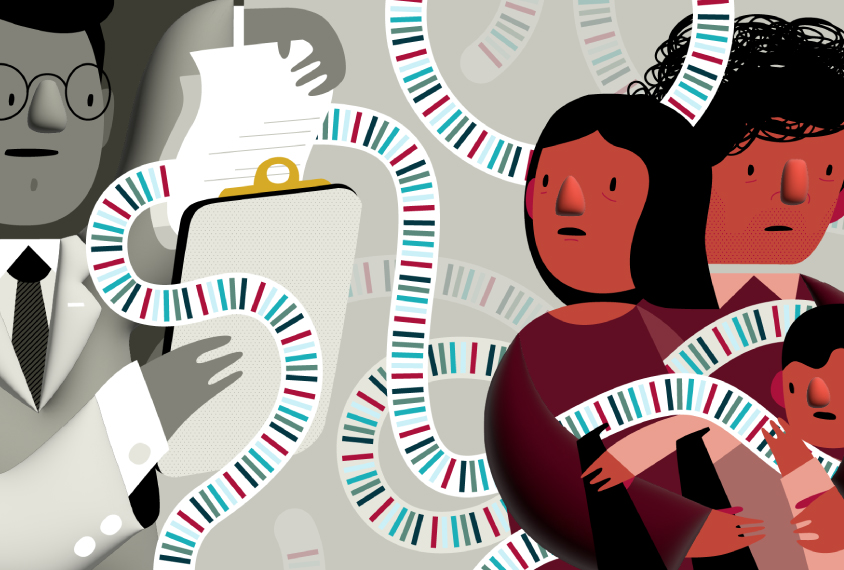Shelby Grebbin was Spectrum’s editorial assistant. Before joining Spectrum, she was staff assistant at the Nieman Foundation for Journalism. As a freelance journalist, she has covered stories related to public health, data transparency and prison health care. Shelby has a B.A. in journalism from Emerson College in Boston, Massachusetts.

Shelby Grebbin
Editorial Assistant
From this contributor
Researchers publish new dataset on minimally verbal autistic people
Researchers at the Massachusetts Institute of Technology published the first repository of vocalizations from minimally verbal autistic people. Those with few or no spoken words still produce a range of phonemes, or units of sound, that may serve as developmental markers or intervention targets.

Researchers publish new dataset on minimally verbal autistic people
Autism and menopause: Q&A with Rachel Moseley and Julie Turner-Cobb
Menopause poses significant challenges for autistic people, according to a small survey published in 2020 — the first to explore the transition among people with autism traits.

Autism and menopause: Q&A with Rachel Moseley and Julie Turner-Cobb
Web-based autism screening service raises a host of concerns
Neurona Health, a company in San Francisco, California, backed away from part of its newly launched services after Spectrum started reporting about them.

Web-based autism screening service raises a host of concerns
Explore more from The Transmitter
This paper changed my life: Ishmail Abdus-Saboor on balancing the study of pain and pleasure
A 2013 Nature paper from David Anderson’s lab revealed a group of sensory neurons involved in pleasurable touch and led Abdus-Saboor down a new research path.

This paper changed my life: Ishmail Abdus-Saboor on balancing the study of pain and pleasure
A 2013 Nature paper from David Anderson’s lab revealed a group of sensory neurons involved in pleasurable touch and led Abdus-Saboor down a new research path.
Sex bias in autism drops as age at diagnosis rises
The disparity begins to level out after age 10, raising questions about why so many autistic girls go undiagnosed earlier in childhood.

Sex bias in autism drops as age at diagnosis rises
The disparity begins to level out after age 10, raising questions about why so many autistic girls go undiagnosed earlier in childhood.
Microglia implicated in infantile amnesia
The glial cells could explain the link between maternal immune activation and autism-like behaviors in mice.

Microglia implicated in infantile amnesia
The glial cells could explain the link between maternal immune activation and autism-like behaviors in mice.